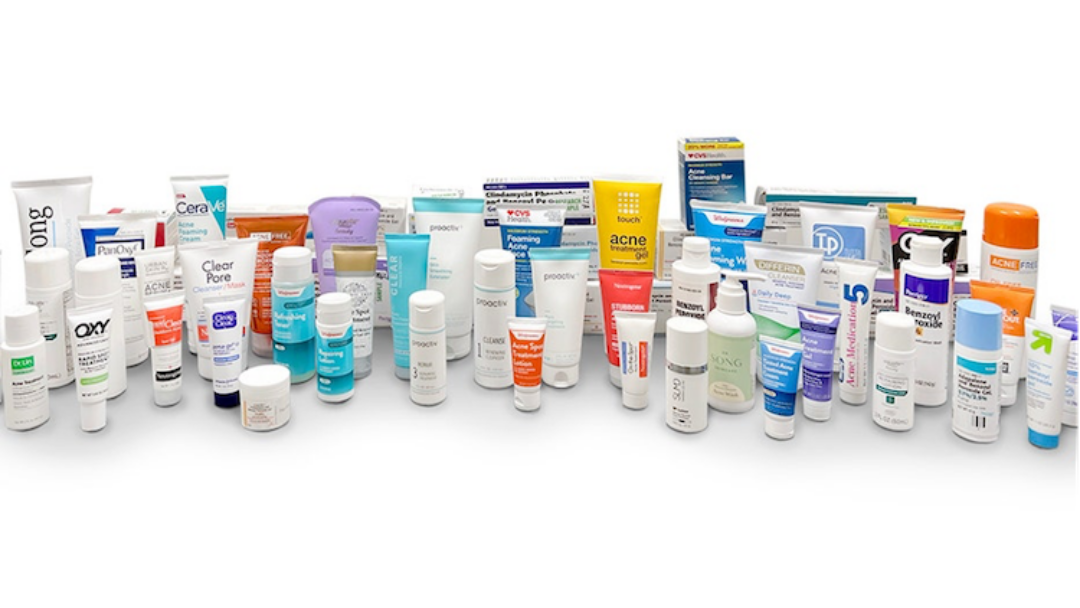A request has been made by an independent lab to recall several well-known acne treatment products containing benzoyl peroxide due to the presence of elevated amounts of a potentially carcinogenic chemical.
According to Valisure, there is a risk of significant levels of benzene, a known carcinogen, being produced in both prescription and over-the-counter acne treatment products containing benzoyl peroxide if they are handled or stored at specific temperatures.
Valisure tested a total of 66 acne treatment items containing benzoyl peroxide, including creams, lotions, gels, washes, liquids, and bars. The results revealed that well-known brands like Clearasil, Proactiv, Target’s Up & Up, and Clinique have the potential to produce benzene levels “hundreds of times higher than the FDA’s acceptable limit.”
According to the laboratory, recent tests indicate that this issue is widespread among benzoyl peroxide products currently available on the market.
The FDA permits a maximum of 2 parts per million of benzene in drug products under extreme circumstances. Nevertheless, tests indicate that the level of benzene in benzoyl peroxide products can exceed 800 times when stored at a temperature of 122 degrees, and up to nine times when the products are kept on the shelf.
Valisure found the chemical was found in both the products and the surrounding air, indicating that benzene may escape from certain product packaging and present a possible hazard if inhaled.
According to the Environmental Protection Agency (EPA), there is a set limit for benzene levels in the air. This limit is measured in parts per billion (ppb) and it is stated that any exposure above this limit carries an increased risk of cancer. Valisure’s analysis of benzene levels in the air found that in some instances, the levels were 1,270 times higher than the EPA’s recommended threshold.
Valisure filed a petition to the FDA on Tuesday, requesting an investigation and the removal of benzoyl peroxide-containing products from the market.
Reports state that the production of benzene in benzoyl peroxide is significantly distinct from the reported levels of benzene in other consumer goods such as sunscreens and hand sanitizers.
In recent years, a number of items including dry shampoos, hand sanitizers, and sunscreens have been withdrawn from the market due to excessive amounts of benzene or higher than recommended levels of chemicals, which could potentially put consumers’ health at risk.
The presence of benzene in consumer products such as sunscreens is due to contaminated ingredients. However, in products containing benzoyl peroxide, the benzene is originating from the benzoyl peroxide itself, often exceeding the FDA’s conditional limit by hundreds of times.
The FDA’s website states that benzene is utilized in the manufacturing process of various industrial goods, including dyes, detergents, and certain plastics. Additionally, it can be emitted into the atmosphere through sources such as cigarette smoke, vehicle exhaust, and the combustion of coal and oil.
According to the FDA, the impact on one’s health due to benzene exposure can vary based on factors such as the quantity, method, and duration of exposure, as well as individual age and any preexisting health conditions. Being exposed to the chemical for an extended period of time through breathing, ingestion, or skin contact can lead to the development of cancers, including leukemia and other blood-related disorders.








